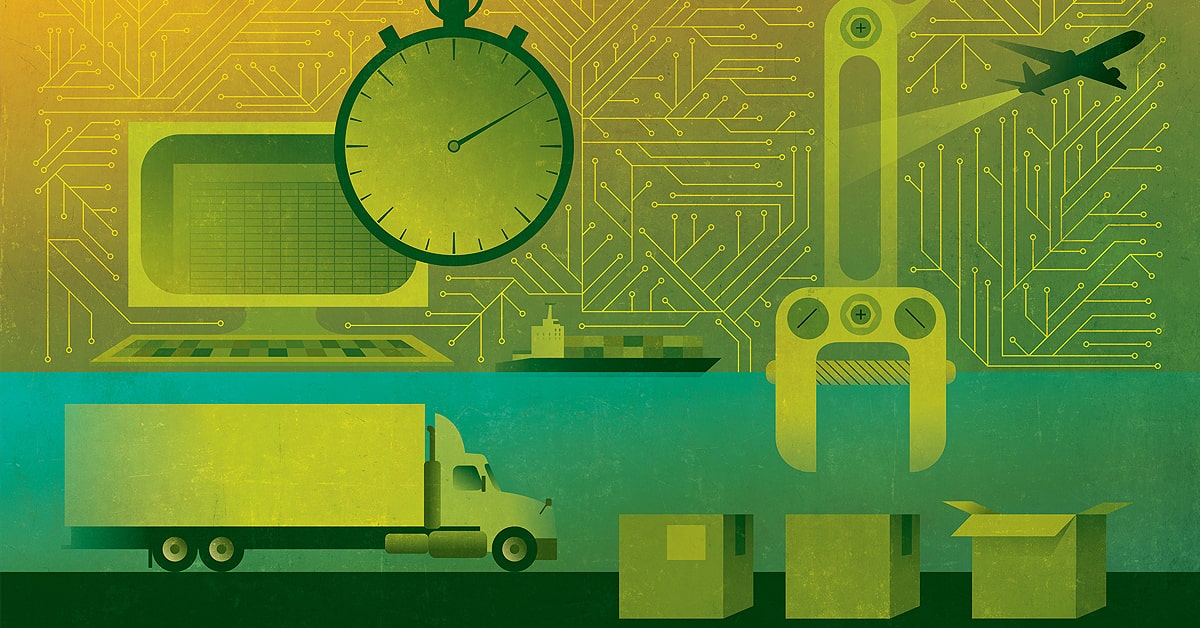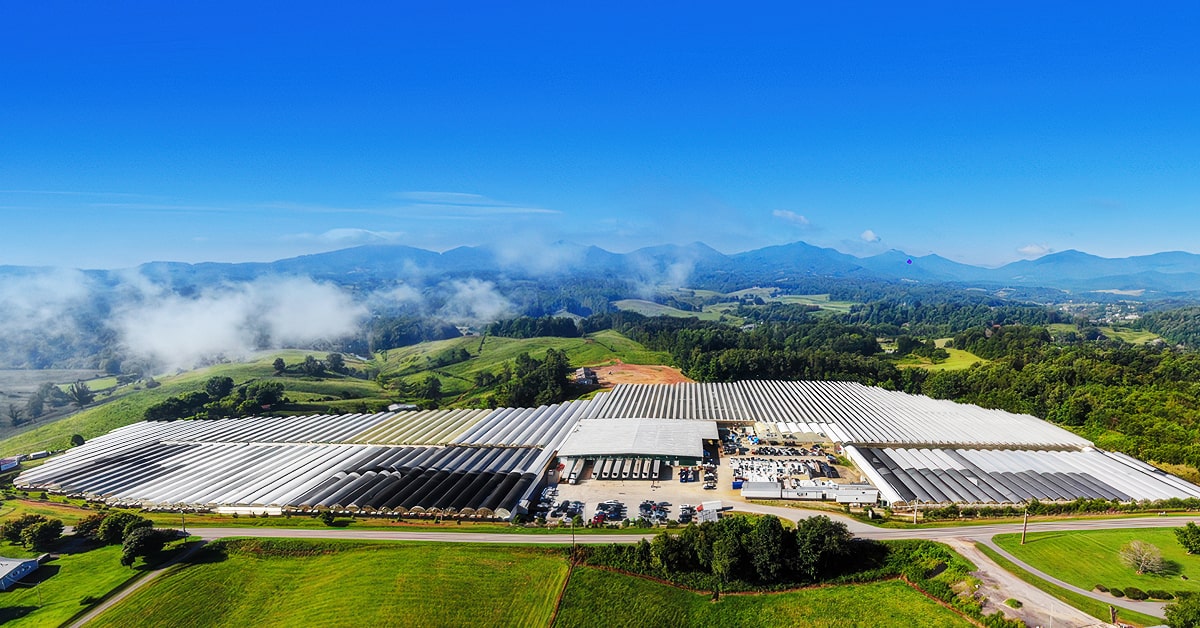
By Lauren Comander
As senior director of transportation and logistics for the world's largest grower of ornamental plants, Willy Maurer (MS '21, BBA '99) is at the forefront of his industry's exciting but arduous transition toward utilizing artificial intelligence (AI). The company, Costa Farms, based in Miami, has long used software to help with siloed tasks like routing and weather analysis for its shipments to far-flung big box stores. Now, as the company transitions its software to partners with an AI mindset, Maurer sees great potential and some challenges in the evolving landscape.
"The word AI has been thrown around for a couple of years, but now we are at a pivotal moment and it is transforming the way we see our business going," Maurer said. "The digitization of data over the last couple of decades is now accessible so AI can learn from it, blur the line between different silos and incorporate it into one master brain."
"The digitization of data over the last couple of decades is now accessible so AI can learn from it, blur the line between different silos and incorporate it into one master brain."
– Willy Maurer
As the promise of AI spurs hope for a "master brain" and inches closer to reality for businesses in the logistics and supply chain management space, the industry seeks to harness the power of AI while it grapples with the logistical challenges it presents. Experts and leaders in the field point to positives like increased predictability, route optimization and warehouse automation that improve efficiency, cost savings and customer satisfaction. They ponder further AI potential like an ability to make decisions and take unilateral action. At the same time, they warn of hurdles like overcoming skepticism, uncertain data quality and vulnerability to data breaches.
Either way, experts agree, the industry is particularly suited to take advantage of AI, but adaption to the technology is slow-going. "When you go to a conference, every session that has AI in the title has five times more people than any other talk," said Sebastian Garcia-Dastugue, assistant professor of marketing and logistics at FIU Business, who researches information systems in logistics and supply chain management. "We are at the moment where we know AI is useful and can solve problems, but do we consider AI just Google on steroids?"
Typically, he said, companies initially respond to radical innovation in information systems with automation, creating efficiency. This is where the industry currently finds itself. Companies are tiptoeing into the discovery phase, contemplating where the technology is most useful. The final phase of adaptation, he said, will be when AI gains new capabilities that fundamentally change how companies manage their business.
The potential upside of AI for the industry is enormous, said Craig Austin, associate teaching professor of marketing and logistics at FIU Business. "Businesses are figuring out how to take advantage of the opportunities," he said. "The ability of AI to crunch data and generate ideas on how a company can maneuver to create new routes, better serve their customers, or better obtain information from their suppliers is enabling a company to build a much more comprehensive strategy that involves predicting demand – and making things more predictable is always a goal of business!"
"The ability of AI to crunch data and generate ideas on how a company can maneuver to create new routes, better serve their customers, or better obtain information from their suppliers is enabling a company to build a much more comprehensive strategy that involves predicting demand – and making things more predictable is always a goal of business!"
– Craig Austin
Businesses like Costa Farms are tapping into rules-based AI, which uses optimization algorithms to assist with routes by maximizing efficiency and minimizing mileage. "We pay our carriers by miles so even a small savings of 1% saves millions of dollars," Maurer said. Costa Farms is looking to its software partners to move it to the next level with machine learning, which unlike traditional rules-based systems, uses data to predict, adapt and optimize routes in real time.
Taking it a step further, prescriptive AI analyzes data to suggest improvements. For Maurer, this means the ability to analyze years' worth of granular data on more than 22,000 annual loads of freight. "It gives you ideas on how to route your freight, use delivery schedules to our benefit, load trucks differently," Maurer said. "All those scenarios would boggle a person that would have to sit there and calculate this insurmountable amount of data. This is huge!"
 Photo courtesy: Costa Farms
Photo courtesy: Costa FarmsMaurer works closely with his vendors to learn what is out there. "The key for any company that wants to dive into AI is to tap on the resources they currently have," he said. "A lot of the vendors they have are in the process of learning best practices so get educated from them."
Companies also should consider their particular needs. "What are your expectations and what are you looking to gain from machine learning?" he said. "If the juice is worth the squeeze, take the next step, but don't just do it because it's trendy."
Businesses also need to be thoughtful on how they involve employees. Simply training them about the technology is not enough, Garcia-Dastugue said. "They need time to be playful with the technology, four to six hours a week," he said. From there, he said, businesses should require employees to share what they learn companywide. "The level of curiosity and ingenuity I'm so adamant about has to happen with interaction," Garcia-Dastugue said. "The biggest opportunities are going to be where we tend to have the most problems in business, and those are in the interaction among functions."
The greatest challenge for businesses at this juncture, experts agree, is securing stakeholder buy-in. "The biggest challenge whenever you have new technology is getting the stakeholders to buy into the potential," Maurer said. "You have to trust what AI is giving you and shift your mindset and your process to fit that, and large organizations have a lot of stakeholders."
It's easy to understand why workers might have trust issues. "AI is like a magician moving his hands, pointing here and pointing there; you're not always sure what's going on and how the decision is being made and what data it is pulling from," Austin said. "That's really troubling. These are business decisions where millions of dollars are at play."
The secrecy behind the algorithms used to generate the output prevents businesses from understanding their risk and managing it. "This lack of candor carries significant ethical and reputational risks for supply chain planning," Austin said. "AI shows some deep, troubling biases in its data in terms of what it pulls."
"The biggest opportunities are going to be where we tend to have the most problems in business, and those are in the interaction among functions."
– Sebastian Garcia-Dastugue
Another complicating factor is that, at this juncture, people are unsure of what to do with the data once they get it, knowing the quality of the output largely hinges on the quality of the input. "There's a real motivation to be able to take data and make use of it, but they're really struggling," Austin said. "Can they harvest it and make decisions based on it?"
AI also makes the supply chain more vulnerable to data breaches.
To mitigate these risks, businesses should take advantage of technology solutions. "Microsoft leverages AI to assist businesses in monitoring and reacting promptly to disruptions that might affect supply chains," Austin said. "Following the identification of a possible risk, the system can automatically craft a message and send it to the concerned suppliers."
Businesses also need to attract and retain workers who understand how to use AI to its fullest potential.
At the end of the day, experts agree, it's more important than ever to be a strong logistician. "You have to frame the right question or you're not going to get all the possible answers to show you the solutions to your problem," Garcia- Dastugue said. Businesses also must remember that human connection can't be overlooked. "Supply chains are built on collaboration," Austin said. "AI is a tool among many, but it cannot build relationships."